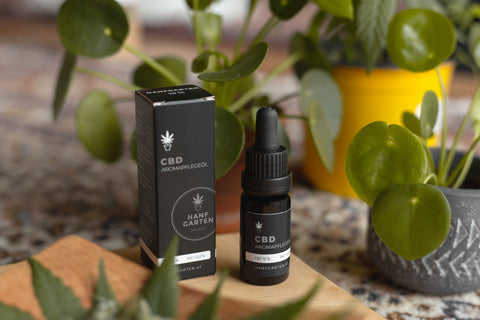Perhaps you already know aboutsetting up and managing a businessin Singapore andaccepting paymentson your online store. Maybe you’ve even mastered the details ofimport duties. But how much do you know about prohibited items in Singapore?
The Lion City has strict regulations about what products can be bought and sold within the country and stringent requirements for importing and exporting goods. For example, Singapore's food regulations ensure that only high-quality produce is imported into the city. But it also expressly forbids the import of certain goods. Some goods on the Singapore Customs prohibited items list might be obvious—endangered animals, for example. Others, though, might surprise merchants—who knew you couldn’t import e-cigarettes into the country?
No matter where they are on their entrepreneurial journey, understanding the different types of prohibited items in Singapore is helpful for merchants trading in the country.
What’s the difference between prohibited and controlled items?
Online retailers should note that there’s a difference betweenprohibited items in Singaporeand what are referred to as controlled items. If an item is prohibited, it’s illegal to import it into Singapore. It’s also illegal to sell these products within the country, though there are certain exceptions. On the other hand, you can legally import and sell controlled items in Singapore. But, to do so, you must first get the required authorization from the relevant Competent Authorities (CA).
Importantly,couriershave their own list of goods that they won’t ship. These include everything on the Singapore Customs prohibited items list, along with other items that could be questionable or dangerous, like perfume and alcohol.

Which goods are prohibited in Singapore?
Despite the country's strict regulations, the list of items you can't import into Singapore is short and specific. Below are the main items merchants should know about.
Chewing Gum
Decades ago, public authorities realized that gum was becoming a "public nuisance." In 1992, when people started sticking used gum in the doors of the MTR trains, causing significant disruptions and malfunctions, they simply outlawed gum in the country. Now though, you can carry gum for personal use and get prescriptions through medical practitioners if necessary.
Firecrackers
When theDangerous Fireworks Actcame into force in 1972, it became illegal to import, trade, or possess fireworks in Singapore. The Act covers all types of "dangerous fireworks," including firecrackers, rocket fireworks, and sandcrackers. There are hefty fines for those who break the law, and in recent years,Singapore has prosecutedseveral people under the Act.
管制药品和精神药品
Singapore’sMisuse of Drugs Regulations概述了四类管制药品the drugs on the Fourth Schedule are on the Singapore Customs prohibited items list. Merchants should be aware that this includes cannabidiol (CBD) and its derivatives, cannabis, and opium.
Many types of tobacco products
Cigarettes are probably the only thing you'll get away with smoking in Singapore—and even then, only in a few places. The Singapore Customs prohibited items list includes many tobacco products, including smokeless cigars, dissolvable nicotine, and snuff. In addition, hookah was banned in 2016, shuttering Arab Street's famous shisha lounges, while vapes have been outlawed since 2018.
Obscene and objectionable materials
Singapore is known for its strict censorship laws, so of course, Singapore Customs' prohibited items list includes all manner of questionable materials. Under theUndesirable Publications Act, it’s illegal to import and distribute any materials that cover “sex, horror, crime, cruelty, violence, or the consumption of drugs or other intoxicating substances” that may harm the public. The law also includes any materials that cover race or religion in a way that may spark hostility.
TheSedition Act of 2013also ensures that "seditious and treasonable materials" are among the major prohibited items in Singapore. Specifically, these prohibited items in Singapore can include books, magazines, and movies. Civil servants can search suspicious packages and materials, and subsequently make arrests without a warrant. First-time offenders may be liable for a fine of up to SG$10,000 and jail time of up to three years.
Unauthorized copies of copyrighted materials
Singapore has comprehensive intellectual property laws, so importing, selling, and distributing copyrighted materials is strictly illegal. Merchants caught with copyright-infringing material can be fined up to SG$10,000 for each item or SG$100,000 in total, and could face up to five years in jail.
Endangered wildlife
Doing its part for wildlife conservation, Singapore Customs’ prohibited items list includes endangered wildlife species—or products—and any form of rhinoceros horns. The Endangered Species (Import and Export) Act makes it illegal to import (or export) any endangered species or parts or products derived from them. It also mandates a maximum fine of SG$50,000 and/or two years' imprisonment per animal or part for those who break the law.
Telecommunications devices
All types of military-grade communications equipment are considered prohibited items in Singapore. However, several other types of telecommunications equipment that could potentially be used for nefarious purposes are also banned. These include scanning receivers and radio communications jamming devices. Unexpectedly, it is also illegal to import numerous models ofcordless phones, including some by major brands like AT&T, Panasonic, and Sony.Frequently asked questions about prohibited items in Singapore
What’s the difference between prohibited and controlled goods?
Will couriers accept Singapore Customs’ prohibited items?
Is it illegal to possess prohibited items, or just to import them?
Will I face consequences for having or importing prohibited goods?
Understanding prohibited goods in Singapore
Singapore's stringent import laws mean that numerous items are tightly regulated or simply illegal to import. Although merchants should be aware of the prohibited items in Singapore, it's unlikely that they will be dealing with these goods. Shopify merchants also have to adhere to the company'sAcceptable Use Policy, which has its own list of prohibited goods. Some of these are similar to those on the Singapore Customs prohibited items list, including hateful content and copyrighted materials. As long as you avoid all of these items, though, you canship your orderswith confidence.Start your online business today.
Start your free trial on Shopify.No credit card required.

